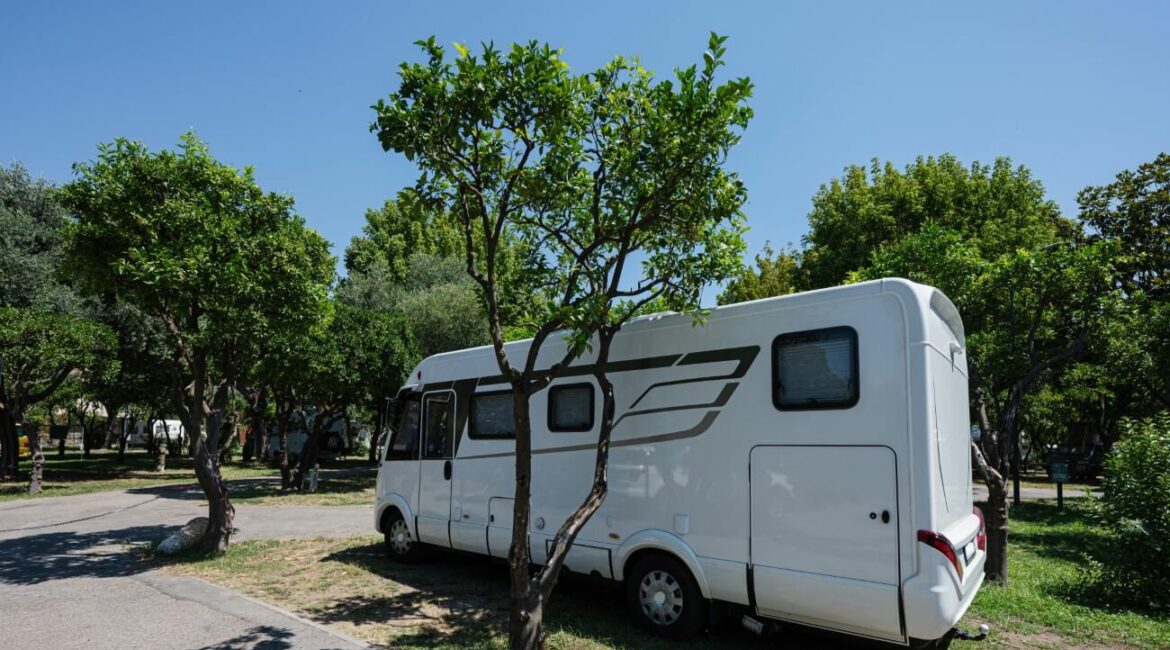Alright, fellow RV enthusiasts, let’s talk about the not-so-glamorous side of RVing. We’re Darren and Jane, your friendly guides, and today, we’re diving into the nitty-gritty of RV sewage and the unexpected challenges you might encounter on the road. Yes, it’s not the most pleasant topic, but it’s a crucial aspect of RV life. Buckle up, because we’re about to explore the sh*tty side of RVing (pun intended).
1. Dealing with RV Sewage: Tips for Newbies
So, you’ve just hit the road in your cozy RV, but what goes in must eventually come out, right? RV sewage is a reality, and it’s essential to handle it with care. Here are some practical tips to make the process smoother:
- Dumping Stations: Familiarize yourself with RV dumping stations along your route. Many campgrounds and rest areas offer these facilities.
- Black and Gray Tanks: Understand the difference between black (toilet waste) and gray (sink and shower water) tanks. Empty the black tank first, followed by the gray tank to help flush out residue.
- Use RV-Friendly Toilet Paper: Invest in RV-specific toilet paper, which dissolves easily and reduces the risk of clogs.
- Tank Treatments: Consider using tank treatments to control odors and break down waste. There are various options available, so find one that works for you.
2. The Dreaded Clogs and Odors: How to Handle Them
Let’s face it; clogs and odors are inevitable in the world of RV sewage. But fear not, because we’ve got your back with some expert advice:
- Clog Prevention: To prevent clogs, avoid flushing anything other than toilet paper and waste. Food scraps, paper towels, and feminine hygiene products can wreak havoc.
- Tank Odor Control: To tackle odors, use deodorizing products made specifically for RVs. Ventilation is your friend; keep roof vents open to ensure proper airflow.
- Regular Maintenance: Schedule regular maintenance for your RV’s sewage system. It’s like giving your home plumbing a check-up.
3. Emergency Situations: When Things Go Wrong
Sometimes, despite your best efforts, things can go south (literally). In the event of a sewage-related emergency, here’s what you should do:
- Stay Calm: First and foremost, don’t panic. It’s an unpleasant situation, but it’s manageable.
- Contain the Mess: Use absorbent materials like kitty litter or disposable towels to contain any spills.
- Call for Help: If you’re unsure how to resolve the issue, it’s best to call a professional RV technician.
4. Honesty with Fellow RVers: The RV Community Has Your Back
Here’s the silver lining in all this: the RV community is incredibly supportive. Don’t be embarrassed to talk about sewage mishaps with fellow RVers; chances are, they’ve been through it too. Sharing experiences and solutions can help everyone learn and avoid similar mishaps in the future.
5. Eco-Friendly RVing: Sustainable Sewage Solutions
In today’s eco-conscious world, it’s essential to consider sustainable sewage solutions. Learn about composting toilets, which are environmentally friendly alternatives to traditional RV toilets. We’ll explore how they work, their benefits, and tips for maintaining them. Going green in your RV lifestyle not only reduces your environmental footprint but also makes sewage management more efficient.
6. Freeze Woes: Winter RVing and Your Sewage System
If you plan to RV during the winter months, you’ll encounter unique challenges related to your sewage system. This section covers how to prevent freezing and damage to your tanks and pipes in cold weather. From insulation to heated hoses, we’ll share essential tips to ensure your RV sewage system stays functional, even in freezing temperatures.
7. Smell-Proofing Your RV: Beyond Deodorizers
While deodorizers help combat odors, there are additional steps you can take to keep your RV smelling fresh. We’ll discuss techniques like deep cleaning, using natural odor absorbers, and proper waste disposal practices. A clean and odor-free RV enhances your overall camping experience.
8. The Importance of RV Toilet Maintenance
Regular maintenance of your RV’s toilet can prevent common issues like clogs and leaks. We’ll provide a step-by-step guide to maintaining your RV toilet, including cleaning tips, checking for wear and tear, and addressing minor problems before they become major headaches. A well-maintained toilet ensures a trouble-free journey.
9. Sewage Safety: Protecting Your Health on the Road
Safety is paramount, even when dealing with sewage systems. We’ll discuss the importance of wearing protective gear when handling sewage, such as gloves and masks, and provide guidance on proper handwashing afterward. Understanding the health risks associated with sewage handling is essential for your well-being on the road.
Now that we’ve tackled the less glamorous side of RVing, you’re better equipped to handle sewage-related challenges on the road. Remember, sh*t happens, but with a bit of knowledge and preparedness, you’ll breeze through it. Safe travels!
FAQ : Sh*t Happens – The Unpleasant Side of RVing You Need to Know
How often should I empty my RV’s black tank?
The frequency of emptying your black tank depends on usage. As a general rule, it’s a good idea to empty it when it’s about two-thirds full to prevent clogs and odors.
Can I dump my RV sewage anywhere?
No, you should never dump your RV sewage just anywhere. Always use designated dumping stations at campgrounds, RV parks, or rest areas. Dumping sewage illegally can result in fines.
What should I do if I encounter a sewage leak inside my RV?
If you experience a sewage leak inside your RV, stay calm and contain the mess. Use absorbent materials and contact a professional RV technician for assistance.
How can I control odors in my RV’s sewage system?
To control odors, use RV-specific deodorizing products and ensure proper ventilation by keeping roof vents open. Regular maintenance of your sewage system also helps keep odors at bay.
- Transform Your Health with Medford Medical Weight Loss Program - June 9, 2025
- A Chat with Nate and Mika, Christian Wedding Photographers - July 18, 2024
- Ultimate Guide To Playing Online Casinos - May 27, 2024








